If They’re Overreacting About These 13 Topics, They’ve Got Secrets
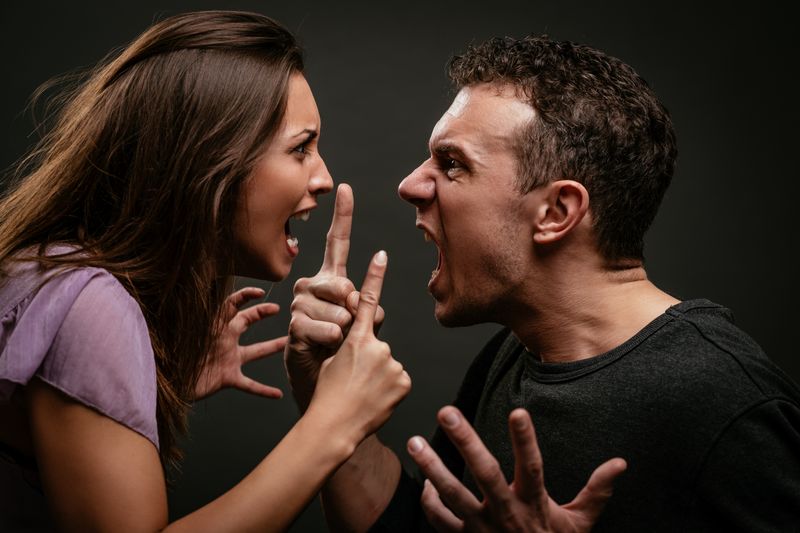
We’ve all met someone who gets a little too defensive when certain topics come up. Instead of brushing it off as “just their personality,” pay attention—because defensiveness is often a red flag. People who overreact are usually protecting something they don’t want revealed, and the louder they get, the more likely it is that you’ve hit a nerve.
1. Money & Spending Habits

When someone bristles at the mention of finances, it’s rarely about your question—it’s about their own stress. Money is deeply tied to self-worth, and admitting financial problems can feel humiliating.
Some people hide credit card debt, gambling issues, or simply poor money management. Others may feel embarrassed about living paycheck to paycheck while projecting a different lifestyle.
If every conversation about budgeting, bills, or even splitting a check sparks irritation, it’s worth noting. Defensiveness around money often signals they’re not being transparent about how well (or poorly) they’re managing it.
2. Romantic Relationships

A person who becomes unusually prickly about their relationship status usually has something to protect. Maybe they’re hiding infidelity, struggling in their current partnership, or keeping secrets about who they’re really seeing.
Romance is vulnerable territory, and when someone’s defensive, it can point to dishonesty or insecurity. Even simple questions like “How are you and your partner?” might trigger a sharp reaction if the truth isn’t flattering.
It doesn’t always mean scandal—but it often means discomfort. Whether it’s shame, guilt, or a double life, their defensiveness speaks volumes.
3. Work & Career

A career can be a huge part of someone’s identity, so questions about jobs or promotions can stir up insecurity. When someone snaps back or avoids answering, it could mean they’re not as successful as they’d like you to believe.
People sometimes exaggerate titles, downplay job struggles, or overcompensate for dissatisfaction with their work. Defensiveness becomes a shield to protect the image they want to project.
It’s especially telling if they can’t discuss goals, accomplishments, or even frustrations without sounding irritated. That usually means there’s a gap between the story they tell and the reality they live.
4. Family Background

Bringing up family is usually harmless—unless it isn’t. If someone reacts like you’ve hit a nerve, chances are their family history isn’t picture-perfect.
They could be hiding estrangement, childhood trauma, or complicated relationships they’d rather not explain. Some people even mask shame about parents, siblings, or upbringing with anger as a way to shut down the conversation.
The defensiveness doesn’t necessarily mean they’re lying, but it does mean they’re guarding something sensitive. Family can reveal a lot about a person, which makes it a common sore spot for those trying to keep parts of their past hidden.
5. Past Mistakes
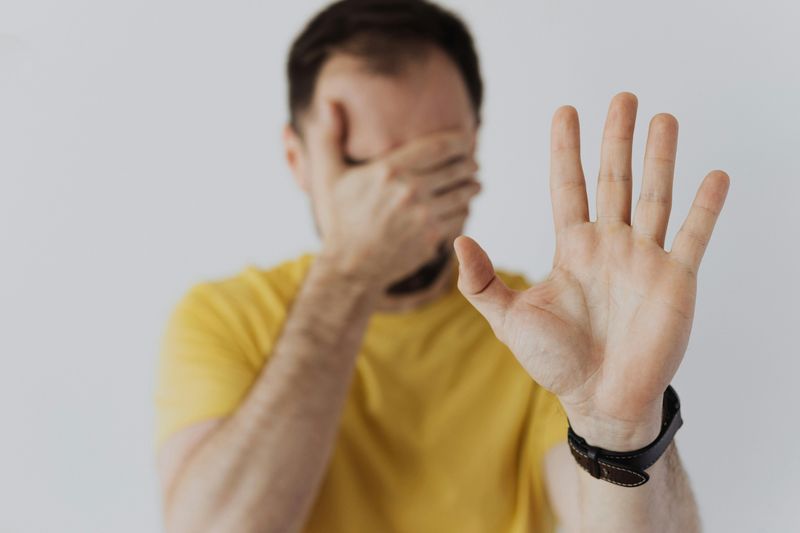
We all mess up—it’s part of being human. But when someone can’t admit to even the smallest slip-up, that’s a red flag.
People who get defensive about mistakes often have deeper regrets or failures they’re desperate to keep under wraps. They might fear being judged or losing credibility if the truth comes out.
Instead of owning their past, they deflect or lash out, which ironically draws more attention to what they’re hiding. A person who can’t comfortably acknowledge lessons learned is usually protecting a much bigger story.
6. Age

Defensiveness about age often signals insecurity, and it usually isn’t about the number—it’s about what that number represents.
For some, it’s tied to fears of not accomplishing enough by a certain milestone. For others, it’s the dread of aging in a society that glorifies youth. They may lie about their age, dodge the question, or respond with irritation to avoid being “outed.”
When age is treated like a state secret, it’s usually covering either vanity, regret, or an uncomfortable truth about where they are in life compared to where they think they should be.
7. Education & Credentials
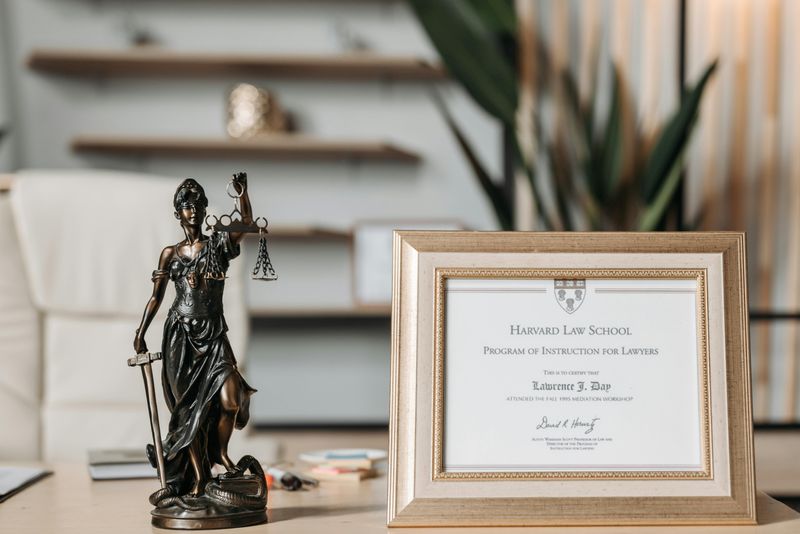
Few things sting like feeling “less than,” and education is a common sore spot. Someone defensive about schooling or credentials may be insecure about not finishing, exaggerating their qualifications, or even fabricating them.
It’s not always malicious—sometimes people simply feel ashamed of their path. Still, the sharp defensiveness gives them away.
If a person refuses to discuss their background or reacts like you’ve insulted them, it usually means they’re hiding a gap between perception and reality. Education may not define worth, but their reaction says they believe it does.
8. Friendships & Social Circle

Friend groups often reveal more about someone than they’d like to admit. If a person is defensive about who they spend time with—or how often—it may be because they don’t want you to know the truth.
They could be hiding toxic dynamics, unhealthy influences, or the fact that they don’t have as many close friends as they claim.
Defensiveness here often stems from embarrassment. Nobody wants to admit to loneliness or questionable friendships, so shutting down the conversation feels safer than being honest.
9. Health & Lifestyle Choices

When someone bites back at questions about their health, it often signals more than a preference for privacy.
They may be hiding unhealthy habits like drinking, smoking, or overeating. Or they might feel guilty about not exercising or neglecting medical care. For some, even small comments about diet can hit like judgment.
This defensiveness is usually about shame. Instead of admitting they struggle, they try to silence the topic altogether. But that overreaction often reveals more than it conceals.
10. Online Activity

Social media habits can be surprisingly revealing—which is exactly why some people guard them so fiercely.
Getting defensive about online use could mean secret accounts, questionable follows, or conversations they don’t want others to discover. Even hiding screen time or refusing to share a profile can be telling.
When someone reacts defensively to questions about the internet, it often means their digital life is a lot more complicated than they let on. Secrets thrive online, and their reaction usually signals they’ve got something tucked away.
11. Political or Religious Beliefs

These topics are inherently personal, but defensiveness here often points to deeper conflict.
Someone may feel insecure about their views, fear judgment, or worry that their beliefs don’t align with the image they want to project. They might also be concealing extreme or unpopular opinions.
Defensiveness becomes a strategy to avoid uncomfortable debates—or revealing values they’d rather keep hidden. Even silence can be loud when the subject makes them unusually tense.
12. Living Situation
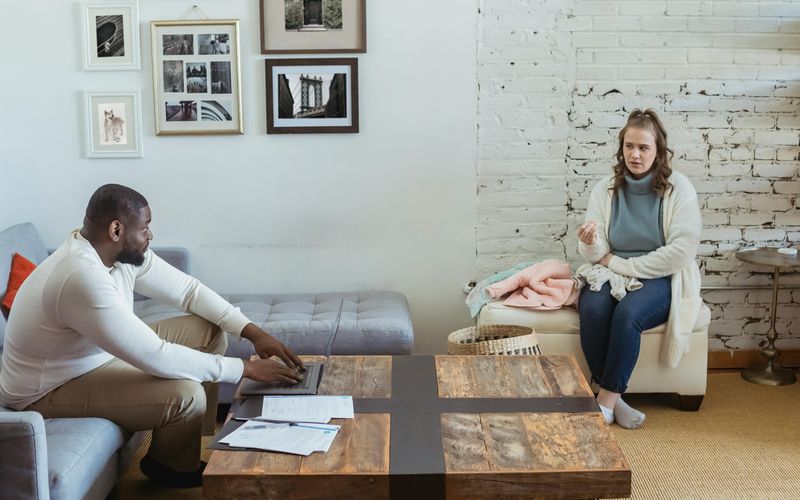
Where and how someone lives can say a lot about them. If they snap at questions about it, chances are the reality doesn’t match the story they tell.
Maybe they’re living with an ex, crashing with family, or struggling to afford rent. They might project independence while hiding financial dependence.
When a simple “Where do you live?” gets met with irritation, that defensiveness is usually covering something they’d prefer not to explain.
13. Future Plans
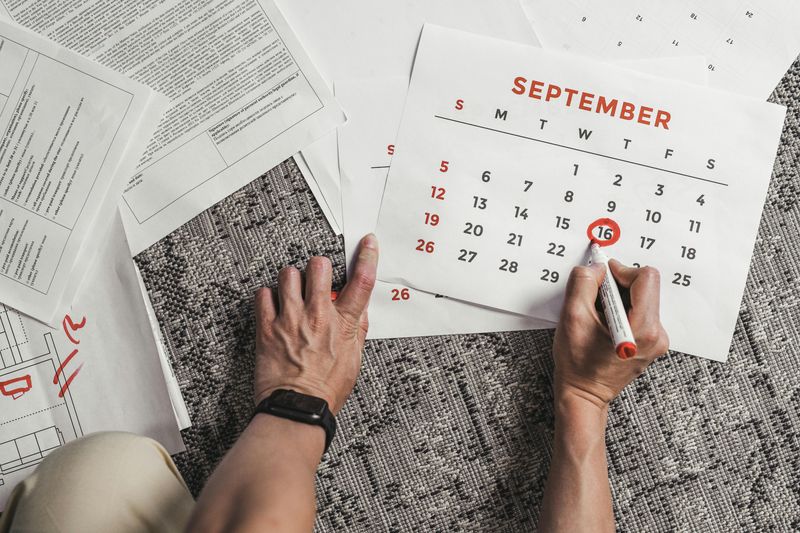
Most people love talking about their dreams, so when someone shuts down the topic, it’s worth paying attention.
A defensive response to “Where do you see yourself in five years?” often signals they don’t have a plan—or they’re avoiding accountability for one. It may also reflect insecurity about missed goals or uncertainty about the future.
Instead of admitting they feel lost, they get prickly. Ironically, the more defensive they are, the more obvious it becomes that something isn’t adding up.

Comments
Loading…